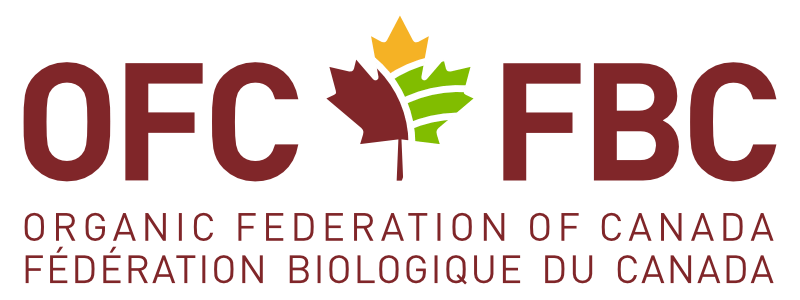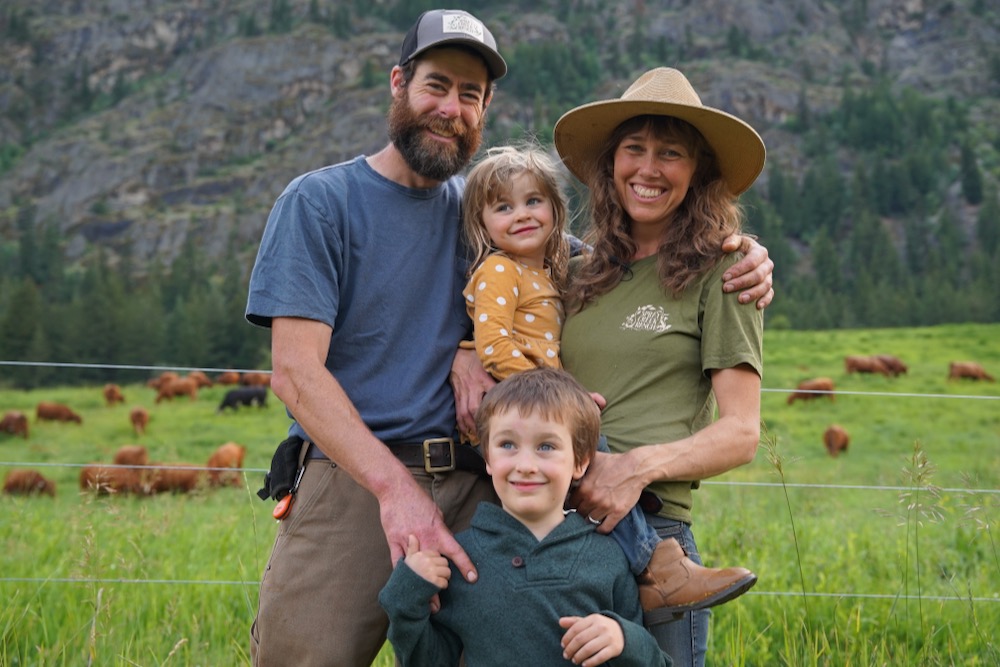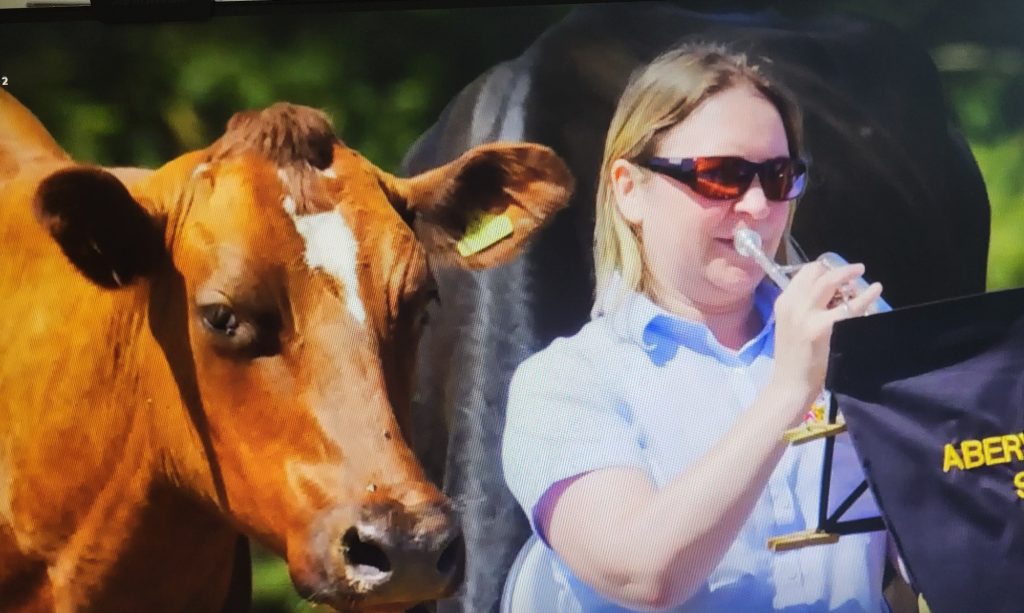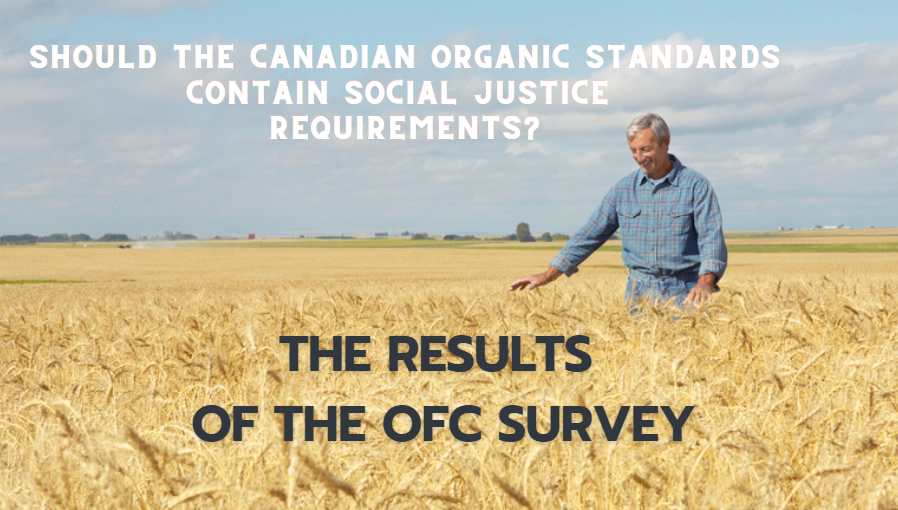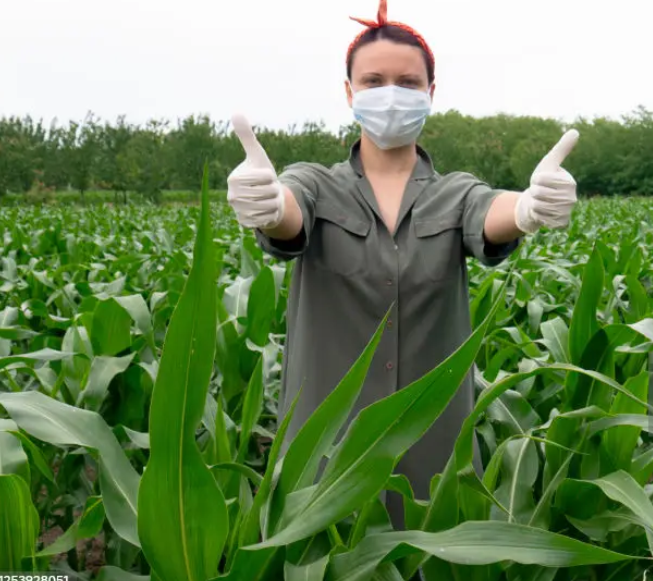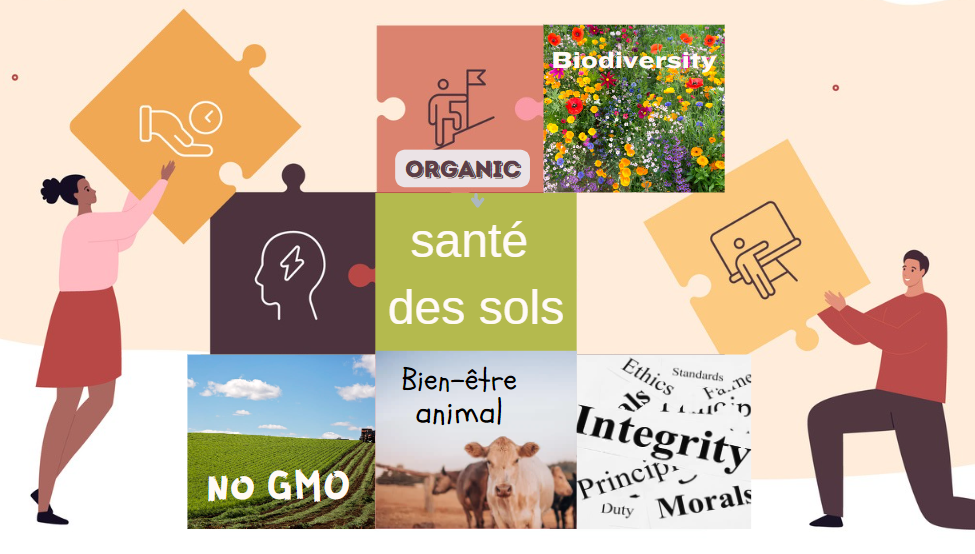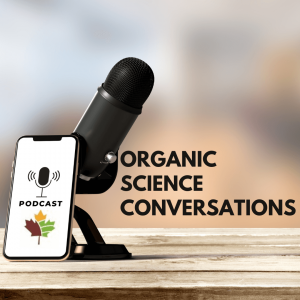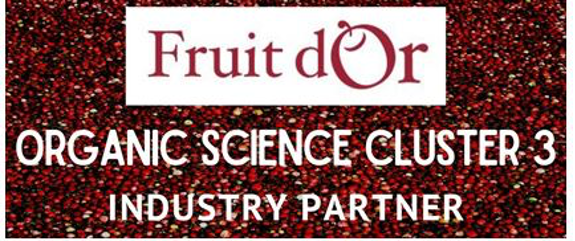
The Organic Federation of Canada publishes a series of feature articles to recognize the contributions of the Organic Science Cluster industry partners.
Raising healthy chickens without using antibiotics
Valuing organic cranberry residues for chicken welfare
Dr. Moussa Diarra, a researcher with Agriculture and Agri-Food Canada, has been testing the addition of berry residues to the chicken diet since 2013 to boost their immune system. As a leader in organic cranberry production, Fruit d’Or quickly became interested in this research activity, which makes use of cranberry processing residues. The Organic Federation of Canada met with Simon Bonin, Agr. M.Sc., director of producer relations and agronomy at Fruit d’Or.

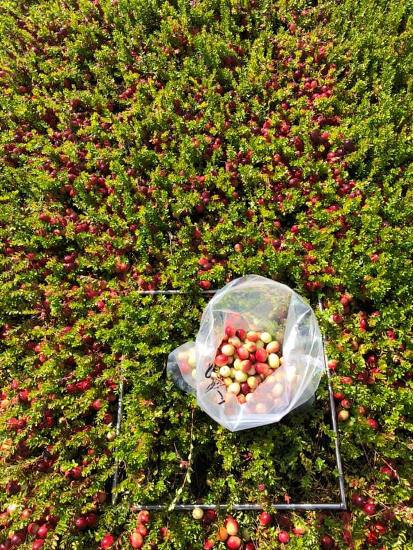
Fruit d’Or was created in 2000 by cranberry growers in transition to organic production. Today, the company is recognized worldwide for the processing of its organic cranberries and wild blueberries sold in more than 50 countries. The company has 140 organic and conventional growers who cultivate 40% of the cranberry acreage in Quebec and has more than 450 employees. Fruit d’Or has contributed to the development of organic cranberry production in Quebec through innovation and knowledge sharing and by supporting producers transitioning to organic production.
Supporting the research activity on the optimization of the use of berry by-products in organic poultry production was a natural and logical alliance for Fruit d’Or, because following several phases of experimentation, Dr. Diarra and his team were able to demonstrate that organic cranberry marcs (residues) improve the intestinal health and immunity of chickens by influencing the activity of bacteria in the gut.
This positive effect of organic cranberry and wild blueberry pomace was first observed by measuring gene expression of certain bacteria affecting chicken health. Chickens fed with cranberry extracts showed improved growth, altered expression of genes related to their immune system, and altered abundance of certain bacteria. In fact, it was observed that a diet enriched with cranberry supplements at the beginning of the growth phase of non-vaccinated chickens could have the same effect as the use of antibiotics, for both indoor and pasture raised organic chickens.
Research continues to optimize the use of organic berry by-products in the chicken diet. Fruit d’Or is proud to contribute to the development of alternative methods to antibiotics to maintain the health of organic chickens. Similarly, reducing the environmental impact of poultry production and the waste from berry processing motivates the company. “We manage our residues well, we have the residue in hand and we treat it like a product we want to keep,” Simon Bonin emphasizes.
The idea is exciting: using cranberry by-products in poultry production promotes the circular economy. This project is therefore in line with Fruit d’Or’s values, which seek to reduce their environmental footprint and constantly push the limits of sustainable development. In the longer term, berry processors will be able to diversify their revenues.
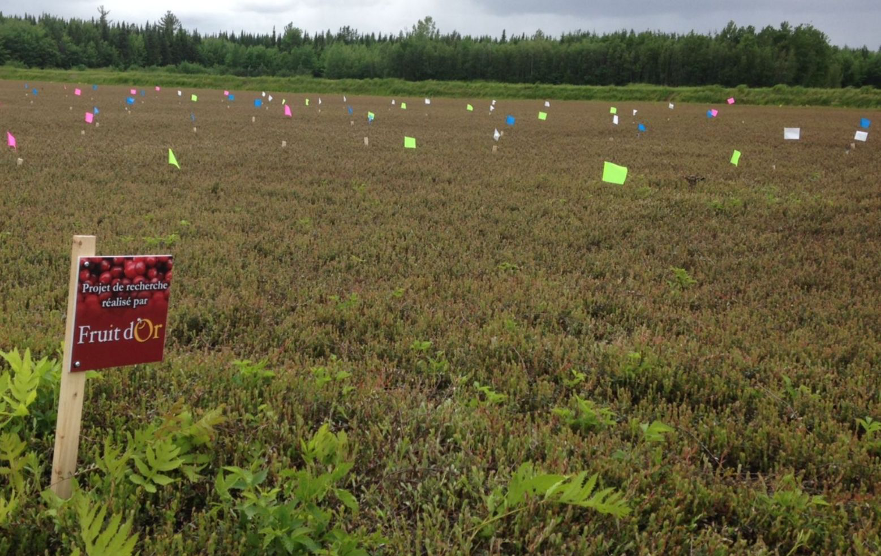
Simon Bonin explains that Fruit d’Or is also developing its own research projects to meet the challenge of organic cranberry production:
- Trials of new organic fertilizers adapted for organic management as well as improving their efficiency by optimizing irrigation time and taking NDVI or SPAD measurements;
- Evaluation of an electrocution method, soil pH mapping and the use of sodium bicarbonate as alternative methods for weed control;
- The contribution to the CETAB+ research chair and the control of pests by testing dormant oils, flooding times and light lamps, as well as adjusting the control thresholds of different pests;
- The use of floral strips to diversify natural predators and the development of pollinator protection methods.
The company’s research activities have contributed to increasing the yield and quality of organic berries, as well as developing knowledge in cranberry production. In addition, Fruit d’Or’s organic transition support program introduced 5 years ago has helped expand organic production and increased annual sales by $30 million.
Fruit d’Or’s cooperation in chicken health research is therefore promising: recycling berry residues to improve the birds’ immunity is in line with the principles of sustainable and ecological agriculture promoted by Fruit d’Or.
To learn more about Fruit d’Or and the activities of the Organic Science Cluster 3, visit the websites: Fruit d’Or and Organic Science Cluster 3
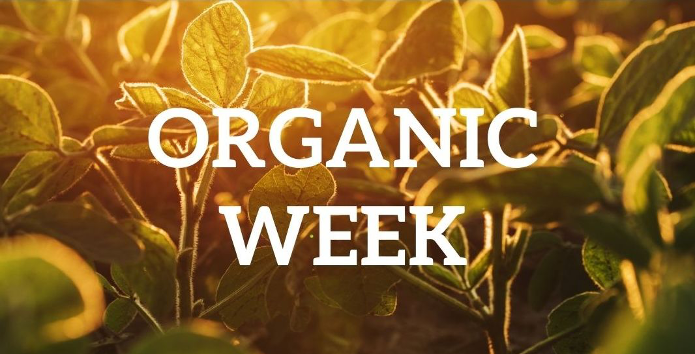
Organic Week is Here! September 13th - 19th
Canada’s National Organic Week is the largest annual celebration of organic food, farming and products across the country. Hundreds of individual events showcase the benefits of organic agriculture and its positive impact on the environment.
Join us for a variety of webinars, panel discussions, and film screenings that focus on organic agriculture.
A highlight of the event includes the long awaited presentation of the results of the National Organic Sector Survey circulated in Spring 2021.
The presentation will describe key findings presented by Tia Loftsgard of COTA and Nicole Boudreau of OFC. A collaborative venture between the Canadian Organic Trade Association (COTA), Canadian Organic Growers (COG), and OFC.

The Federal Election is underway!
Ask your candidates if they will support organic agriculture.
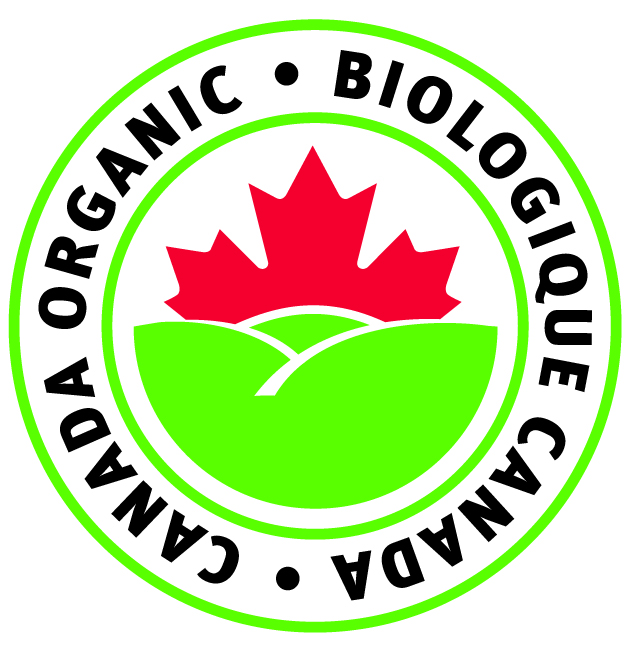
The Canadian government is abandoning funding for the review and interpretation of the Canadian Organic Standards, which are the supporting framework for the whole Organic industry.
What Canada needs is more support for sustainable agriculture, not less. Canada needs to implement a strong Canadian Organic Program:
- Referenced by federal regulations, the Canadian Organic Standards define ecological agriculture as the basis of the whole Organic industry. Government needs to fund the five-year reviews of the Standards which are required by the Canadian General Standards Board.
- The Standards Interpretation Committee (SIC) harmonizes the certification process by providing clarification to the Canadian Food Inspection Agency (CFIA) on questions about the standards asked by certified operators and Certification Bodies under the Canada Organic Regime. Instead of eliminating its contribution, the CFIA should enhance funding to the SIC to improve the timeliness of its work.
- The growth of the Organic market depends on the creation of a permanent database to identify certified Organic operators and to protect and enforce Organic integrity. The Canadian government needs to fund and implement the Canada Organic Regime’s Integrity Database.
- Organic operators grow our food while protecting air and water quality, soil health, human health and biodiversity. Canada should cost share the certification fees they pay as a small token of recognition for the sustainable services that they deliver.
- The growth of the Organic sector depends on more research into agroecosystems and increased technical assistance for on-farm Organic practices. Canada should increase funding for both.
The organic industry needs a Canadian Organic Program
to increase Canadian agriculture’s sustainability and competitiveness
- The USDA and EU fund the maintenance of their Organic standards.
- The European Commission has set a target of ‘at least 25% of the EU’s agricultural land under organic farming and a significant increase in organic aquaculture by 2030’.
- The USDA funds the Organic Cost Share Certification Program (OCCSP) which provides cost share assistance to producers and handlers and has created the USDA Organic Integrity Database to promote the growth of agricultural ecological practices and to prevent fraud.
Vote for the party that will support ecological agriculture and our organic industry!
Share organic concerns with your candidates.

